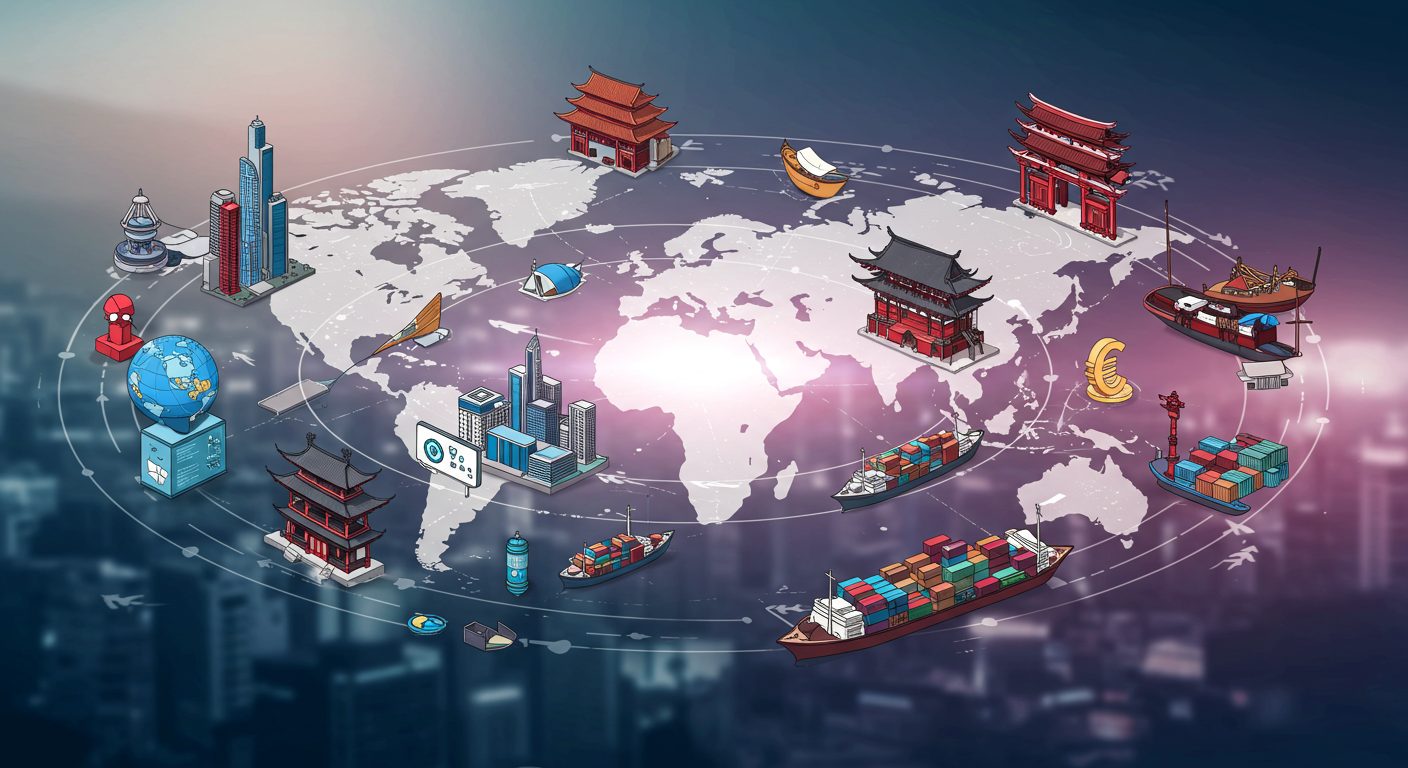Understanding global commerce is more than an academic exercise. It’s the way forward for any business aiming to stand out in our integrated world economy.
How to Master Global Commerce with Legal Leverage
The legal aspects of international trade can either be a company’s greatest ally or a crippling opponent. Whether you’re a fledgling entrepreneur or a seasoned multinational player, mastering the art of legal leverage should be an indispensable part of your toolkit.
1. Building a Solid Legal Foundation
Legal leverage is about having a strong grip on the laws that govern trade across borders.
Countries have different rules, regulations, and standards, which can make or break a business’s global plans. Those who underestimate the importance of navigating these legal details often find themselves entangled in unnecessary disputes and financial pitfalls.
Establishing a solid legal foundation involves understanding export-import laws, tariffs, and even the minutiae of local jurisdictional nuances.
Navigating the world of customs duties and import/export licenses is an important element of building this foundation. Companies must invest time and resources into understanding country-specific regulations to prevent avoidable delays and financial losses.
They should also maintain close relationships with international trade counsel and government agencies to stay updated on regulatory changes and enhance compliance across operations.
Additionally, businesses engaging in commerce with California should consider the requirements for acquiring a California resale license. This certificate is vital for conducting compliant resale activities within the state. Being well-versed in such state-specific obligations can substantially bolster a company’s legal framework, ensuring adherence to local regulations while expanding global operations.

2. The Power of Contracts & Agreements
Contracts aren’t just paperwork filed away in dusty drawers. They are the backbone of every successful business transaction.
A meticulously crafted contract can protect a business from unfair practices, fraud, and ensure fair pricing. The more deliberate one is with their legal agreements, the greater the insulation against unforeseen market fluctuations and disputes.
A wise business minimizes risk by predetermining contractual terms and employing the expertise of seasoned legal advisors.
A good contract isn’t simply a safeguard. It opens doors to new partnerships and opportunities, easing the formation of strategic alliances that can lead to significant business growth.
It’s also a living document that should be reviewed and updated regularly to align with the organization’s current interests and the shifting dynamics of the international market.
3. Staying Abreast of International Regulations
The world of global commerce is intertwined with ever-changing international regulations. These laws can range from environmental standards to labor practices and safety norms.
Compliance is not optional. It’s mandatory. Companies oblivious to these changes quickly find themselves on the wrong side of the law, facing hefty fines and reputational damage. Staying informed is about survival and sensibly anticipating future legal shifts through comprehensive risk management strategies.
Constant vigilance is not only necessary for regulatory compliance but can be used as a strategic advantage. By adopting stricter, proactive compliance measures, businesses can elevate their market position as ethical leaders.
Enhanced transparency in practices and robust adherence to international regulations foster long-term trust with consumers and business partners alike.

4. The Role of Litigation and Arbitration
Disputes are inevitable in commerce. Anticipating them enables businesses to protect their interests.
Litigation and arbitration are two distinct paths companies can take when facing international disputes. While litigation is public and often long-drawn, arbitration offers confidentiality and swiftness. Strategic businesses don’t merely react; they proactively set terms invulnerable to legal ambushes.
Preparing for disputes includes incorporating a conflict-resolution framework into contracts that clearly defines options like mediation, negotiation, and arbitration. Detailed contingency plans not only mitigate disruptions but also foster a corporate culture that is prepared for every outcome, minimizing potential losses and maintaining smooth operational flow.
5. Intellectual Property is Key
In a world dominated by ideas and innovation, safeguarding intellectual property takes center stage in global commerce strategies.
Protecting trademarks, patents, and copyrights isn’t trivial; it’s safeguarding one’s competitive edge. Failure to navigate this landscape equates to opening doors for competitors to seize market share by replicating ideas. Comprehensive IP strategies not only minimize risks but also enhance a company’s valuation.
Global registries and IP organizations play a crucial role in establishing these protections across markets.
Businesses must actively seek partnerships with these entities to remain abreast of advancements in IP protection measures, thereby fortifying their innovations against infringement and ensuring their place at the forefront of their respective industries.

6. Advantageous Tax Strategies
Global commerce isn’t mere trade and exchange. It encompasses advantageous tax regulations that can reduce expenses.
Understanding and leveraging tax treaties and foreign tax credits is a skill top businesses master. Successful enterprises don’t just focus on maximizing profits; they actively seek tax-efficient structures to allocate resources and reap benefits provided by international tax laws.
Businesses need to establish robust financial frameworks that allow them to respond swiftly to shifting tax policies, such as changes in corporate tax rates or regulations on profit repatriation. With input from fiscal experts, firms can devise flexible strategies that reflect agility and adaptability in capitalizing on beneficial tax opportunities.
Conclusion
Global commerce is about understanding the multifaceted world of legal dynamics. Embracing superior legal instruments empowers businesses to maneuver through complex legal terrains with strategic acuity.
The future of global trade belongs to those who can expertly leverage legal insights to propel their ambitions forward. Legal expertise isn’t merely beneficial; it’s imperative to commerce mastery in our interconnected economy.

I am Adeyemi Adetilewa, a content marketing strategist helping B2B SaaS brands grow their organic traffic, improve search visibility, and attract qualified leads through data-driven, search-optimized content. My work is trusted by the Huffington Post, The Good Men Project, Addicted2Success, Hackernoon, and other publications.
